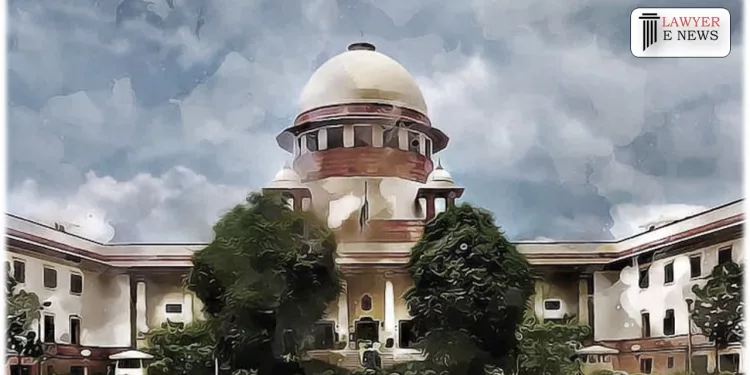Supreme Court Dismisses Compensation Claim for Failure to Establish Employer-Employee Relationship and Delay in Filing

In a recent judgment, the Supreme Court of India dismissed a compensation claim filed under the Employees’ Compensation Act, 1923, citing the failure to establish a valid employer-employee relationship and significant delay in filing the application. The judgment was delivered by Justice Rajesh Bindal on July 4, 2023.
The case pertained to the tragic death of Machindra Ananda Jagtap, who lost his life in a road accident on August 17, 1993, while driving a jeep owned by Jayram Ganpati Jagtap. Shantabai Ananda Jagtap and another individual, the legal heirs of the deceased, sought compensation based on the assertion that the accident occurred during the course of his employment.
However, the Commissioner for Workmen’s Compensation at Sangli, Maharashtra, had rejected the initial claim on the grounds of both delay and lack of merits. The Commissioner also deemed the claim not maintainable under Section 167 of the Motor Vehicles Act, 1988. Subsequently, the High Court of Judicature of Bombay upheld the Commissioner’s decision on the issue of delay but found the claim to be maintainable.
The Supreme Court carefully examined the evidence and arguments presented in the case. It noted that the claimants had failed to establish a master and servant relationship between the deceased and the vehicle owner, Jayram Ganpati Jagtap. The Court observed that the evidence provided, including the admission by the claimant that the vehicle owner was her husband’s brother, did not prove the existence of an employer-employee relationship.
Furthermore, the Court highlighted the claimants’ intent to claim compensation from the offending vehicle rather than the vehicle owner. In an earlier proceeding before the Motor Accidents Claims Tribunal, they had chosen not to claim compensation against the owner or the vehicle’s insurance company. This conduct suggested that they had deliberately avoided making a claim against the employer.
Regarding the issue of delay, the Court emphasized that the claimants were aware of their option to claim compensation under the Employees’ Compensation Act, 1923, from the beginning. However, they had only filed the application before the Commissioner after the proceedings in the Motor Accidents Claims Tribunal concluded in 2003, and they were unable to execute the award. The Court concluded that there was no sufficient cause to condone the significant delay of approximately 9 years in filing the application.
Supreme Court held that the claimants were not entitled to any compensation as they had failed to establish the employer-employee relationship and the delay in filing the application was fatal to their claim. The appeal was dismissed, and no costs were awarded.
Date of Decision: July 4, 2023
Shantabai Ananda Jagtap & anr. vs Jayram Ganpati Jagtap & anr.






